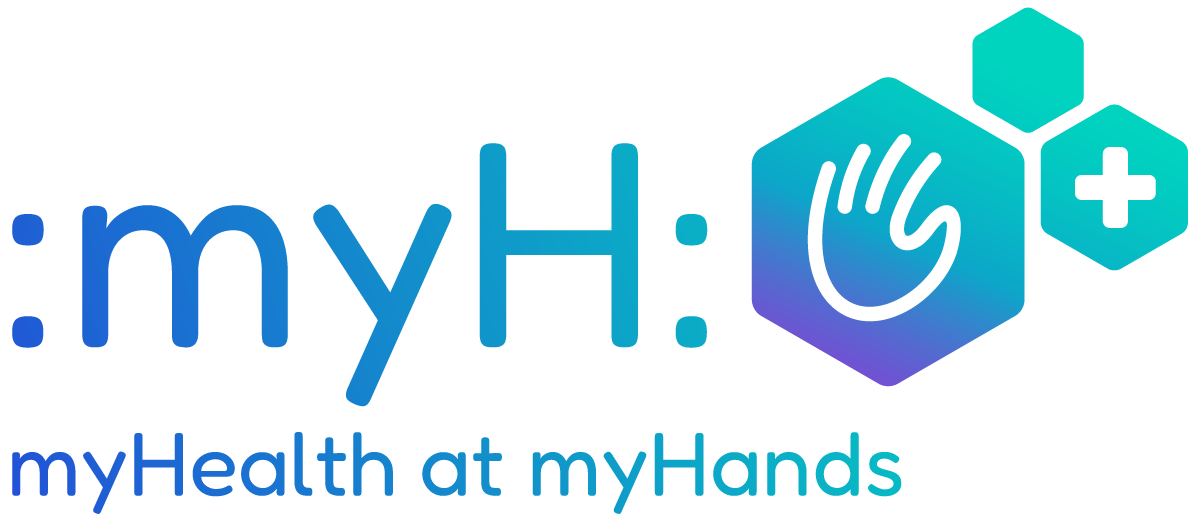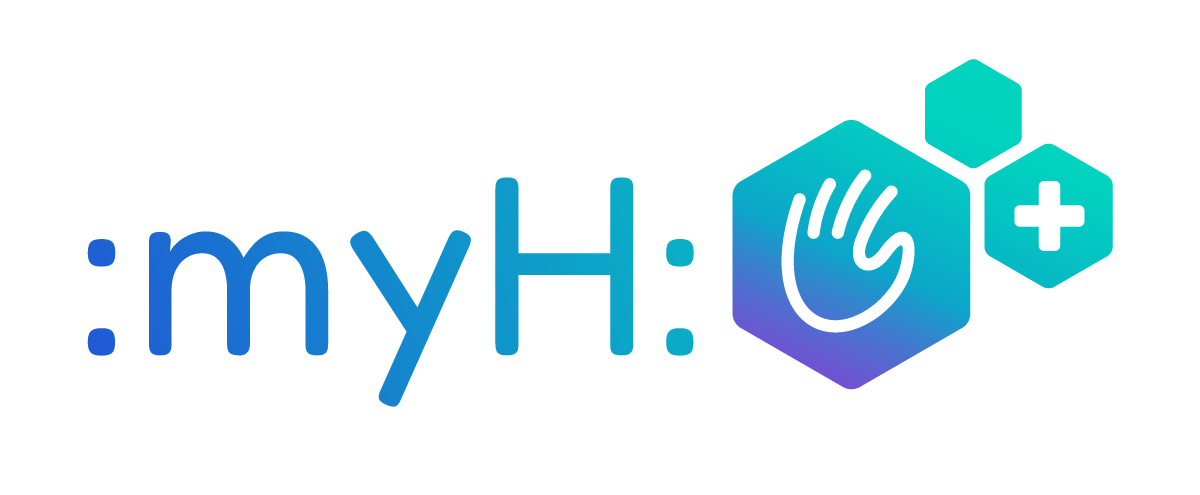Consortium
myHealth@myHands brings together 38 partners, 3 affiliated entities and 4 associated partners from 18 countries, comprising national and regional authorities, governmental and private technology partners, academic and research institutions, SMEs, start-ups and patient organisations, ensuring a comprehensive approach to healthcare developments.
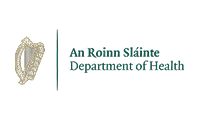
Department of Health (DoH) - Coordinator
The Department of Health (Irish: An Roinn Sláinte) is a department of the Government of Ireland. The Department of Health's mission is to improve the health and wellbeing of people in Ireland by delivering high quality health services and getting best value from health system resources. The department is led by the Minister for Health.
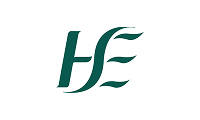
Health Service Executive (HSE)
HSE are Ireland’s public health and social care service. Their goal is to provide quality care and support to people at all stages of life.
Services include:
- vaccines and screening
- hospital care
- community and primary care
- supports for older adults and people with disabilities
- mental health care and support
- medical cards and other schemes
Over 150,000 people work in the HSE to help to achieve this goal. These include nurses, midwives, doctors and other healthcare professionals. They include people working in environmental health, support services and managing hospitals and community healthcare, staff in the National Ambulance Service and many more.
HSE are funded by the Government Department of Health, and their Board reports to the Minister for Health.
Services are a mix of national services, seven hospital groups, and nine community health organisations around the country. From March 2024, these will be organised into 6 health regions, who will each manage all integrated health services in their area.
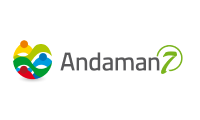
A7 Software (A7)
Andaman7 is a mobile PHR platform that helps patients better manage their health data, enable outcome measurement for pharma and research and support disease management for hospitals and doctors. Andaman7’s unique "security by design and privacy by default" architecture does not store medical data in the cloud.
The company’s particular strengths are in RWD (Real World Data), QoL (Quality of Life), DCT (Distributed Clinical Trials), HEOR (Health Economics and Outcomes Research), registries and PRO (Patient Reported Outcomes) studies. They enable secondary use of data coming from hospitals, labs, devices and surveys directly from patients.
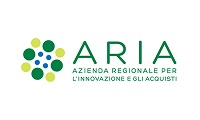
Azienda Regionale per l’Innovazione e gli Acquisti S.p.A. (ARIA)
ARIA S.p.A. stands for Regional Procurement and Innovation company, and its mission is governing public spending, designing and managing physical and digital infrastructures and thriving regional data-driven policies.
ARIA S.p.A. is a public law body owned by Lombardy Region and recently born from the merger of:
- an IT company, in charge of developing innovative solutions and running regional core infrastructures such as the EHR;
- a purchasing body, responsible for aggregating needs’ collection and tenders' organization for the healthcare structures on regional basis;
- a construction company, responsible to designs and to renovate health and public road infrastructures;
- an organization meant to promote Lombardy’s brand and its touristic offer all over the world.
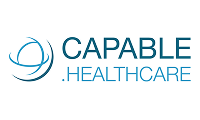
Capable.Healthcare (CAPABLE)
CAPABLE.healthcare AS is a Norwegian SME, started in 2020. Our solution is unique in its explicit focus on and functionality to drive patient engagement through a tool designed for and with patient and their support network, not for the providers and system owners. Capable.healthcare support a registered user to collect, curate and control personal health data, typically stored in health information systems in multiple institutions, services and systems, to get a good overview and understanding of its implications. We offer a generic, secure data storage platform with a set of end-user services, including an accurate medication list with focused medicinal product information, functionality for reporting of personal observations for defined health concerns (PROM), and personal health data the user uses for their health management This personalized tool will use and complement - not substitute or alter - data from healthcare providers and services in the health system.
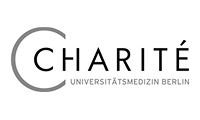
Charite – Universitätsmedizin Berlin (CHARITE)
The mission of the Berlin Institute of Health at the Charité (BIH) is medical translation: transferring biomedical research findings into novel approaches to personalized prediction, prevention, diagnostics and therapy and, conversely, using clinical observations to develop new research ideas. The aim is to deliver relevant medical benefits to patients and the population at large. The BIH is also committed to establishing a comprehensive translational ecosystem as translational research unit at Charité – one that places emphasis on a system-wide understanding of health and disease and that promotes change in the biomedical research culture. The BIH was founded in 2013 and is funded 90 percent by the Federal Ministry of Education and Research (BMBF) and 10 percent by the State of Berlin. The two founding institutions, Charité – Universitätsmedizin Berlin and Max Delbrück Center for Molecular Medicine in the Helmholtz Association (MDC), were independent member entities within the BIH until 2020. As of 2021, the BIH has been integrated into Charité as its third pillar, the so-called translational research unit; the MDC is privileged partner of the BIH.
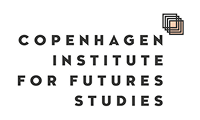
Copenhagen Institute for Futures Studies (CIFS)
The Copenhagen Institute for Futures Studies (CIFS), founded in 1969, is an independent think tank offering strategic advisory services to global clients, including Fortune 500 companies and governments. Specializing in futures methods, CIFS provides megatrend analyses, scenario planning, and risk assessments.
CIFS has led health strategy projects like Movement Health 2030, contributing to global health standards. Their work spans regions including the Middle East, Latin America, and Europe, and involves digital health strategies and personalized health initiatives. Their expertise includes facilitating national discussions in Canada Health 2030 and Danish Health 2030, as well as collaborating with WHO Europe on digital health transformation.
With over 75 years of collective experience, CIFS's team excels in Public Health, Digital Health, and Information Systems. The institute's involvement in diverse global health projects and their multilingual competencies highlight their unique position in the global health domain.
Relevant projects include collaborations on severe asthma analysis, digital health strategies, and primary care initiatives.
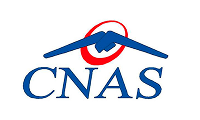
Casa Nationala de Asigurari de Sanatate (CNAS)
The National Health Insurance House (NHIH) is a public, autonomous institution of national interest, whose main object of activity is to ensure the unitary and coordinated functioning of the social health insurance system in Romania.
NHIH has the mission of creating a modern and efficient social health insurance system, permanently serving the public interest and the insured, which has the role of improving the health status of the population.
NHIH operates on the basis of its own Statute and has the following obligations:
- to ensure the logistics of the unitary and coordinated functioning of the social health insurance system;
- to monitor the efficient use of the Single National Health Insurance Fund;
- to use appropriate media tools to represent, inform and support the interests of the insured it represents;
to cover the health service needs of individuals, within the limits of available funds.
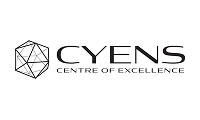
Cyens Centre of Excellence (CYENS)
CYENS Centre of Excellence is a leading Research and Innovation Centre in Cyprus, specializing in Interactive Media, Smart Systems, and Emerging Technologies. A collaborative initiative among the University of Cyprus, Cyprus University of Technology, the Open University of Cyprus, and international partners like the Max Planck Institute for Informatics and University College London, CYENS is funded by Horizon 2020 and the Government of the Republic of Cyprus, with coordination by the Municipality of Nicosia. Within CYENS, the HealthXR Multidisciplinary Research Group (MRG) focuses on smart, citizen-centered eHealth and mHealth interventions. By leveraging mixed reality technologies, edge computing diagnostics, and big healthcare data analytics, HealthXR aims to empower patients to manage their health through smart home interventions, including mHealth and gaming applications for rehabilitation and chronic disease management. The group also emphasizes point-of-care diagnostics to deliver specialized care to remote populations and the development of smart, context-aware healthcare data visualization strategies for various stakeholders in medical research, education, and care provision.
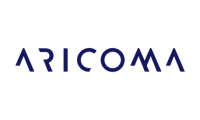
Aricoma Digital S.R.O. (ARICOMA)
Aricoma is the largest provider of enterprise IT services and solutions in the Czech market. We are built on a solid foundation that reflects more than three decades of growth. Behind our success, you will find the ability to respond to market developments, a cohesive team of professionals with many years of experience, and a unique comprehensive portfolio of services and solutions.
We can address challenges in advanced IT infrastructure, across a broad portfolio of enterprise applications and digital solutions to support today´s Digital Governments, and in cloud migration and cybersecurity.
We are part of the strong international investment group KKCG. We want to continue to grow in our domestic markets, and strengthen our cooperation with the EU institutions and our position in Western European markets.
We believe it is our duty to share our success. We therefore support organizations that are dedicated to people in need, but also
support values such as freedom and democracy.
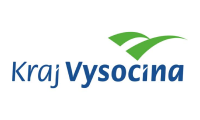
Vysocina Region (Kraj Vysočina)
Vysočina Region, located in the heart of the Czech Republic, is known for its picturesque landscapes, historical heritage, and strong focus on innovation, particularly in the field of eHealth. The region has played a pioneering role in the digitalization of healthcare, contributing significantly to national and European interoperability initiatives.
Vysočina has been at the forefront of eHealth projects, including the development of the National Contact Point for eHealth (NCPeH), which facilitates cross-border healthcare data exchange as part of the MyHealth@EU framework. The region has also been instrumental in implementing eMeDocS, a platform for secure electronic health data exchange, currently connecting over 55 hospitals and emergency medical services across nine regions.
Moreover, Vysočina has actively participated in European initiatives such as the European Health Data Space (EHDS), ensuring compliance with EU-wide standards for electronic health records and secondary data use. The region's efforts include supporting healthcare providers in transitioning to interoperable electronic health record (EHR) systems, integrating FHIR and HL7 CDA standards, and advancing patient access to digital health services.
Through these initiatives, Vysočina is setting an example for other regions, driving the digital transformation of healthcare and enhancing the quality and accessibility of medical services for both residents and cross-border patients.
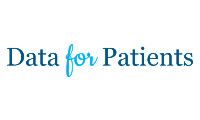
Data for patients S.L. (DFP)
We are a European SME focused on healthcare data and digital consultancy with specific focus on all aspects related to effective collaboration between patients and their healthcare professionals. We have expertise in AI, Data Interoperability, Data quality, Clinical and RWD studies, end-user engagement and design, PROMS/PREMS and Patient Safety.
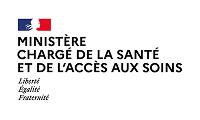
French Digital Health Delegation (DNS)
The Digital Health Delegation (DNS), established by a ministerial order on May 16, 2023, though active since 2017, is part of the Ministry of Health. The DNS is committed to improving healthcare by accelerating the development of secure, interoperable and ethical digital tools. It leads strategic digital health transformation projects at regional and national levels, with the full involvement of its ecosystem (from citizens to patients’ and healthcare professionals’ organisations, as well as public agencies and industry associations). The DNS promotes digital health across borders in cooperation with national digital health authorities, international and EU institutions, particularly through the eHealth Network, co-chaired by France and the European Commission. Its missions are to:
- Define and implement the digital health strategy, in conjunction with the other directorates and departments of the ministries responsible for social affairs and in consultation with the ecosystem.
- Steer digital health transformation initiatives, in particular, the digital health roadmap, the “Ségur du Numérique” strategy and the "Santé Numérique" acceleration strategy (SASN);
- Ensure close steering of the ANS (National eHealth Agency) which operates directly major digital platforms, infrastructures and projects in the health sector
- Coordinate the Digital Health Council, which involves all stakeholders in the major directions of digital health policy;
Represent the interface for European and international initiatives on digital health.
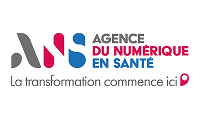
French eHealth Agency (ANS)
The French eHealth Agency (ANS) is a public institution dedicated to guiding the digital transformation of the healthcare system in France. Its mission is to leverage digital technologies to enhance the healthcare system, making it more equitable, high-quality, and efficient. The agency focuses on creating a cohesive digital health ecosystem by establishing common regulatory frameworks, developing national e-programs, and promoting innovative e-health initiatives.
The ANS emphasizes interoperability within its scope of action, exemplified by the Health Information Systems Interoperability Framework (CI-SIS). This framework establishes the rules for a communicative health IT environment across the health, medico-social, and social sectors, providing technical and semantic guidelines for stakeholders to effectively exchange and share health data.
Additionally, the ANS is involved in significant national projects, including the construction and deployment of national systems such as SI-SAMU, SI-CAP, and SI-VIC, with SI-SAMU providing the national medical assistance service with products and services to support their digital transformation, ensuring uniform access to quality care across the country. Other initiatives aim to provide unified national portals, like the PSIG for reporting adverse health events, or to implement periodic certification for healthcare professionals, ensuring the maintenance of competencies and the quality of professional practices across the healthcare landscape.
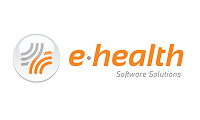
eHealth Software Solutions (EHSS)
eHealth Software Solutions Ltd. has been operating successfully in the Hungarian e-health market for a period of 12 years. The company’s activities are founded on three primary pillars: IT consulting, application development, and research and development. Throughout its existence, the organization has developed numerous high-value, custom healthcare systems for both competitive and public sector institutions. The clientele of eHealth Software Solutions Ltd. encompasses government institutions, public and private hospitals, multinational corporations, and small to medium-sized enterprises (SMEs).
The company’s proprietary ClinCoreSys™ modular medical framework serves as the foundation for several healthcare research and patient care information technology systems. This platform facilitates the connection between patients and physicians in their respective care institutions through the utilization of state-of-the-art IT tools. Furthermore, it manages a multitude of business and medical processes, thereby enhancing operational efficiency and patient throughput for institutions.
Through its innovative, automation-based solutions, it augments the care tasks performed within institutions by incorporating digital functions for commercial purposes (such as appointment booking, online billing, and payment), marketing (including online campaign management), and home care telemedicine (encompassing prevention, rehabilitation, and video consultation).
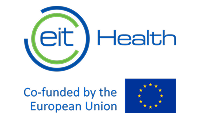
EIT Health Ireland-UK (EITH IRL-UK)
EIT Health Ireland-UK, a co-location centre of EIT Health, part of the European Institute of Innovation and Technology, is Europe’s largest health innovation network. We bring together the brightest minds from the worlds of business, research, education and healthcare delivery to answer some of the biggest health challenges facing Europe.
Our vast community connects 100+ leading Member organisations, with thousands of start-ups, entrepreneurs and healthcare professionals.
We facilitate and fund projects and programmes that intersect across education, innovation and business creation. Our work goes beyond conventional approaches to disease management and disease prevention. We promote innovation and entrepreneurship in the healthcare industry by building and growing businesses to create products and services that progress healthcare for patients in Europe.
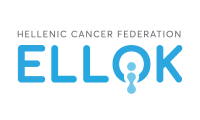
Elliniki Omospondia Karkinou ELL OK (ELLOK)
The Hellenic Cancer Federation (ELLOK) is a patient-led non-profit organization with 49 members of Cancer Patient Associations, representing various cancers and regions of the country, with a comprehensive understanding of the diverse landscape of cancer care in Greece. The organization's aim is to realize a vision of comprehensive, timely, and affordable cancer care for all patients, encompassing stellar diagnosis, treatment, psycho- social support, and survivorship care, which extends to rehabilitation and seamless reintegration into social life.
ELLOK's multifaceted approach extends beyond its national focus, as it actively participates in EU-funded research projects aiming to bridge the gap between researchers and patients, fostering a collaborative environment where the lived experiences of individuals with cancer inform and shape the trajectory of scientific exploration. The overarching aim of ELLOK is not only to advocate for improved cancer care but also to actively contribute to the advancement of knowledge and methodologies in the field. By promoting patient involvement in EU-funded research, ELLOK positions itself as a catalyst for positive change, fostering a paradigm where patients are not passive recipients of care but active contributors to the scientific discourse surrounding cancer.
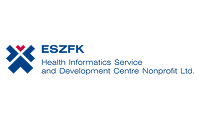
ESZFK Health Informatics Service and Development Centre Nonprofit Ltd. (ESZFK)
The Health Informatics Service and Development Centre Nonprofit Ltd. (ESZFK) started its operation on 1 February 2022 as a 100% owned company of the Hungarian state. The ownership rights are exercised by the Ministry of Interior on the basis of the GFM Decree 1/2022 (26.V.).
The main tasks of our organisation are the development and application operation of central health information systems, as well as the provision of customer service for these systems. Our aim is to develop user-friendly solutions by drawing on our many years of experience as developers and by maintaining close contact with our customers.
The ESZFK was created to provide public services. Its aim is to develop central health IT systems and to perform application management and customer service tasks. In particular:
- EESZT,
- miniHIS, the web application for GPs, and
- miniGYSE, an IT system for distributors of medical devices.
In addition, the ECDC is responsible for the development and operation of the MedSolution family of integrated medical systems. The tasks related to the health system are provided to its customers as a public service provider through individual public service contracts.
In addition to the above, the ESZFK is involved in a number of European projects, see website for more details.
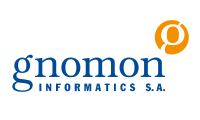
Gnomon Plirophorikis AE (GNOMON)
GNOMON INFORMATICS S.A. is an innovative company headquartered in Thessaloniki, Greece. It provides solutions for patient empowerment and assisted independent living.
History indicates a solid 30-year-old software engineering background, delivering important national & EU projects.
GNOMON is the creator of eHealthPass, the patient centred platform that enables frictionless data flow across systems and clouds. Our company has the longstanding vision and inspiration to digitally transform healthcare, insurance and social care industries by unlocking the value of data and enabling the data economy.
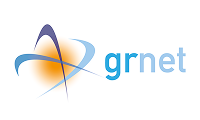
National Infrastructures for Research and Technology (GRNET)
GRNET - National Infrastructures for Research and Technology, provides advanced network, cloud computing and IT infrastructures and services to academic and research institutions, to educational bodies at all levels, as well as to agencies of the public, broader public and private sector. It holds a key role as the coordinator of all e-Infrastructures in education and research, leveraging the educational and research activity in Greece towards the development of applied and technological research.
GRNET, operating under the auspices of the Hellenic Ministry of Digital Governance, contributes to the country’s Digital Transformation via in-depth analysis, technological studies, standard solutions and specialized know-how. Among others, the organisation further develops and executes the strategy for artificial intelligence and machine learning, operates the national HPC competence center and the Pharos AI Factory, the central government portal gov.gr, the national digital competencies portal, the National & European Quantum Communication Infrastructure and the National & European Digital Identity Wallet. Since 1998, GRNET serves, on a daily basis, hundreds of thousands of users, in the strategic fields of Public Administration, Education, Research, Health and Culture.
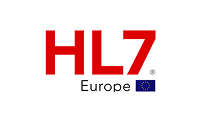
HL7 International Fondation (HL7)
HL7 Europe is a not-for-profit Foundation established in Brussels in 2010 with the aim to address European standardisation requirements in digital health serving as the European office of HL7 International. The mission of HL7 Europe is to provide standards that empower global health data interoperability to realise its vision of a world in which everyone can securely access and use the right health data when and where they need it. It works in close cooperation with 22 national HL7 Affiliates across Europe and supports the creation of health information technology standards that are widely and easily used enabling interoperability in healthcare.
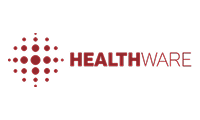
Healthware Tanacsado Kft. (HEALTHWARE)
HEALTHWARE is a leading consulting company in the Hungarian health industry, due to its market-leading portfolio of pharmaceutical economics, outcome research, big data analysis, health financing and IT solutions. Through the long-term experience, exceptional capabilities and reputation, Healthware provides valuable strategic services to help identify a product’s value proposition and determine the best solution for market access. The impact of Healthware in Hungarian life science market is dominant. Healthware is your partner to identify and implement the new business scenarios. By application of real-world data analytics, health economics, epidemiology services combined with technology-driven IT solutions, the best possible practices are ensured to our Clients in healthcare environment. In Hungary Healthware is: - leader in real-world data analysis, - market leader in pricing & reimbursement services and market access expertise, - leader in health-finance consultancy, - permanent actor at strategic planning, - developer of different IT platforms (e.g. patient side registries, online management information systems, interactive data viewer tools, health-related micro portals).
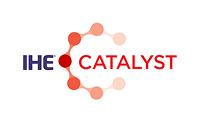
Integrating the Healthcare Enterprise Catalyst (IHECat)
IHE-Catalyst is a not-for-profit company that acts as an activator for standards-based health information exchange (HIE), digital health efficiency and innovation in interoperability healthcare processes, supporting the global healthcare community in accelerating the adoption of standards to enhance interoperability and provide implementable HIE architectures worldwide.
IHE-Catalyst enables interoperability processes by harmonizing and maintaining balance among stakeholders, creating HIE ecosystems, organizing testing events, thus driving the evolution of interoperability specifications while upholding IHE principles and methodologies.
It functions in an operational role supporting, facilitating, and managing the IHE testing system with testing tools, testing governance and testing events. It also supports National Initiatives and governments in their strategic tasks, enabling and implementing the evolution of IHE testing tools, i.e. Gazelle into a third generation of test tools.
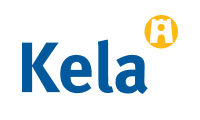
Kansanelakelaitos (KELA)
the Social Insurance Institution of Finland
Kela, the Social Insurance Institution of Finland, is a government agency that provides basic economic security for everyone living in Finland. Kanta services is part of Kela, The Kanta Services are digital services used by social welfare and health care sectors and the public. They enable more effective social welfare and health care services throughout Finland. In addition, the data supports social welfare and health care providers in their decision making. The Kanta Services are a set of digital services that store citizens' social welfare and health care data. The use of this data makes it easier to manage affairs relating to your health and wellbeing. In MyKanta, you can see your own health data and prescriptions. You can also view laboratory test results, renew prescriptions and make a living will.
Data stored in Kanta can be used in knowledge management, research, and official duties. This helps to develop more efficient and effective social welfare and health care services.
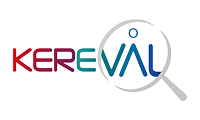
Kereval (KEREVAL)
Kereval is a French SME founded in 2002, specializing as a test engineering laboratory. KEREVAL offers consulting and expertise in functional, compliance, interoperability, AI and cybersecurity software testing. KEREVAL's proficiency in interoperability is especially recognized in the e-health sector, thanks to a technical partnership with IHE-Europe. KEREVAL assists regulators in developing and defining interoperability frameworks for information systems and provides them with interoperability testing tools through the Gazelle testing platform. KEREVAL organizes interoperability testing events, such as projectathons and connectathons, which allow vendors to validate the compliance of their implementations with interoperability frameworks and test their developments in a peer-to-peer configuration with other vendors.
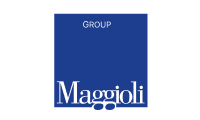
Maggioli SPA (MAGGIOLI)
Maggioli, a leading Italian company, provides specialized solutions in IT, Services & Technologies, Publishing, Training and Education, Document Management, and Museums, Art and Culture. As one of Italy’s largest ICT integrators, it is part of the Maggioli Group, which has 1,800+ employees worldwide, with branches in Italy, Athens, Brussels, Tenerife, Madrid, and Bogotá. Maggioli Greece hosts most of the R&D team, serving as a near-shore extension of Maggioli’s Research and Innovation Unit and participates in most of its international projects. Maggioli leads IT solutions for the Italian public sector, managing about 100.000 modules and serving 3,800+ museums and 1500 SMEs. With expertise in system integration, software development, and large-scale IT projects, Maggioli excels in complex architectures, federated data sharing, cloud computing, big data, IoT, cybersecurity, eHealth, and data spaces. Maggioli is a founding member of the Artificial Intelligence for Health Imaging (AI4HI) network and coordinated the EU-funded INCISIVE project, which delivered an AI decision support tool for diagnosing and treating four types of cancer, along with a reusable, pan-European federated data repository of millions of interoperable and FAIR medical images and clinical data. As work package co-leader of the work on data federation and interoperability, Maggioli is also a key partner in EUCAIM, the EC's flagship project and cornerstone of the European Cancer Imaging Initiative, working to deploy a federated pan-European infrastructure for cancer imaging data.
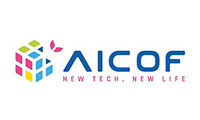
Attivita Industriali, Commerciali e Finanziare (AICOF)
AICOF is a Software House based in Cagliari, Sardinia. We harness the impressive skills of 80+ tech talents to deliver high quality custom software and system integration projects. We specialize in Public Sector Digital Transformation projects, spanning from e-Health services to high-capacity Document and Process Managing. Our products deliver efficient and innovative digital public services to millions of citizens, ranging from regional-level authorities to national government agencies. We believe our work is most fun when it combines our passion for technology with the purpose of making people's lives easier. Our multidisciplinary teams cover all the phases of the production process: insightful business analysis and careful planning, Human Centered Design, High-Definition Prototyping, State-of-the-art software development, smooth and reliable automation. And that's just the start: once the project is set up, we follow through meeting our clients' change management needs: modern workforce training programs, impeccable user support, competent consultancy. AICOF Vanguard - our R&D division - is focused on its mission: leveraging AI and emerging Web Standards to envision new solutions for our clients' business domains. As every good superhero, we are always in for a team-up: we are currently partnering with international IT firms such as Accenture, Almaviva, Dedalus. In October 2021 Gruppo Maggioli - among Italy's largest IT corporations - acquired a stake in AICOF, widening our range of market opportunities.
Application fields and Technologies mastered: We develop high performance document and process management solutions mostly - but not exclusively - aimed at public sector services. We usually build cloud-native backends as micro-service architectures with Kubernetes orchestration. Technologies and languages: Java (Spring Boot), Kafka message broker, Mongo / Oracle DBMS, C#. Our front-ends are typically designed as Single Page Applications, with a strong preference for Angular.
Industry Expertise: Public sector digital services engineering. More specifically, document and process management for e-Health or administrative solutions represents the largest share of our projects and revenues, both as B2B and B2G contracts.
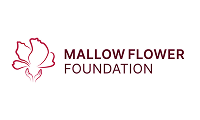
Mallow Flower Foundation (MFF)
Our organization started in 2013, working along two main lines. One line is the prevention of the Human Papilloma Virus (HPV), the other line is the help of gynaecological cancer patients and caregivers. The first line includes education and campaign programs, creating brochures, running online talks, informational videos, the second involves managing the entire patient pathway from symptoms through therapies to rehabilitation. We cooperate with the professionals, doctors, district nurses, nurses. We are honourable members of the Society of Hungarian Gynaecologist Oncologists. Beside this we received the perpetual right to exhibit in the conferences, trainings organized by the Hungarian Gynaecologist Society. Our unique project is the digital patient pathway guide, which is done in 5 gynaecological cancers, 6 head and neck cancers and in breast cancers. WE have 20 Mallow Points in the country, and we work for closely with the Hungarian Health Authority and the Government.
In Europe we are part of several organizations, ESMO, ESGO, WOCC, ASCO. We are part of the work of guidelines and professional materials from the patient expert point of view.
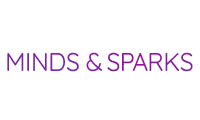
MINDS & SPARKS GmbH (M&S)
MINDS & SPARKS (M&S) is an independent, non-profit research organisation based in Vienna, Austria fostering science, innovation and technology to address major challenges and develop new methods and solutions for a better society. M&S creates strong connections between science and society using interdisciplinary approaches, promoting best practices and raising awareness on research and innovation achievements. Furthermore, the organisation focuses on improving the sustainability of research and innovation outcomes especially of public funded projects to ensure that spent resources lead to permanent positive impacts for the society as a whole.
M&S is formed by a team of highly skilled personnel which holds many years of experience in designing, leading and implementing research and advisory projects and it hosts development consultants and technical engineers which have broad knowledge along the software development cycle. The organisation is involved with various research and innovation stakeholder networks including research organisations, academic institutions, civil societies, NGOs, governments, and industry in various sectors such as safety and security, health and care, energy and environment, or information and communication technologies.
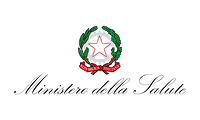
Ministry of Health (MINSAL)
The Italian Ministry of Health (MINISTERO DELLA SALUTE) is the Italian representative at EU level in the subjects of its competence. The Italian Ministry of Health is the official government authority in Italy for health and the link with international and European institutions on all health-related topics. It prepares the National Health Plan that outlines the strategic actions of healthcare for Italy that have to be implemented by regions: priority areas of intervention; essential levels of healthcare assistance; per capita amount of financing secured to the Regions for each year of validity of the plan needs and guidelines for staff training; guidelines for diagnostic-therapeutic pathways; criteria and indicators for verifying effective levels of assistance compared to set standards.
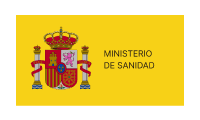
Ministerio de Sanidad (MS-ES)
Ministry of Health of Spain- Ministerio de Sanidad (MS-ES)- is responsible for proposing and implementing the Spanish government policy on health, planning, and healthcare, as well as exercising the powers of the State Administration to ensure citizens' right to health protection. Also, acts as National Contact Point for eHealth, coordinating all regions that make up the country, and It is the representative body of Spain in all European and international forums on health matters. In this regard, MS-ES has been involved in the negotiation of the EHDS Regulation, especially during the Spanish Presidency of the Council of the European Union.
MS-ES has a long-standing experience on the primary use of health data under the MyHealth@EU initiative. Among other flagship initiatives, MS-ES has led the incorporation of Spain’s national health System to the cross-border health services (Patient Summary and ePrescription/eDispensation). MS-ES has also been actively involved in other initiatives like X-eHealth, TeHDAS II, XT-EHR, PATHED, POTENTIAL among others.
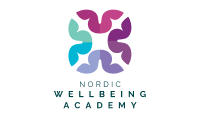
Nordic Wellbeing Academy (NWA)
Nordic Wellbeing Academy is a non-profit NGO working to foster interpersonal relations and wellbeing and health literate organisations in Denmark, Scandinavia, and Europe. It offers consulting, education, networks, and builds international projects. It organizes knowledge sharing networks on relational skills, recovery and rehabilitation, and social responsibility. It is Danish based – but are engaged in Danish, Nordic, and European initiatives and networks.
Our team and networks offers consulting for individuals and organisations, we build and conduct educational concepts, we build and coordinate networks, and we develop and run national and international projects.
We organize knowledge sharing networks on relational skills, recovery and rehabilitation, and social responsibility – all to transform mindsets and futures.
The Nordic Wellbeing Academy is based in Denmark – but work with both with Danish, Nordic, and European people, partners, and initiatives. We are engaged in European networks and initiatives like EuroHealthNet, the Nordic Health 2030 Movement, and the European Health Union Initiative.
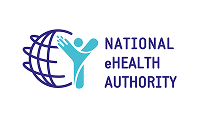
Ethniki Archi Ilektronikis Igeias (NeHA)
The National eHealth Authority (NeHA) is a legal person of public law and has been established under The Electronic Health Law of 2019 (59 (I) / 2019) issued by publication in the Official Gazette of the Republic of Cyprus in accordance with Article 52 of the Constitution, which describes the duties, powers and the authorities. The Authority is managed by and acts through a seven-member board (Executive Chair, Vice Chair, and five members), which manages its assets and resources and carries out its duties, powers, and authorities. The purpose of this Law is to establish a framework for the use of electronic health for the prevention of disease, the promotion of health and the effective and safe provision of health services to citizens, the implementation of the National eHealth Record system for all citizens, the regulation of the storage and use of biomedical information and telemedicine. The National eHealth Authority is also under Article 17 of its legislation the National Contact Point for eHealth (NCPeH) for cross-border healthcare defined by EU.
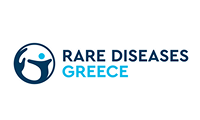
Rare Diseases Greece (RDG)
Rare Diseases Greece (RDG) is a non-profit association based in Athens, representing over 30 member organizations nationwide. It stands as the largest body advocating for individuals with rare diseases in Greece, participating in key committees and working groups, such as the Committee for Rare Diseases and the Pharmaceutical Expenditure Monitoring Committee of the Ministry of Health. RDG is also the official representative of Greece in international platforms, being a member of the European Organization for Rare Diseases (EURORDIS) and Rare Diseases International (RDI).
The association's primary objectives include uniting the rare disease patient community, collaborating to ensure equitable access to healthcare, advocating for patient rights, and representing its members in national and international organizations. RDG emphasizes the development of national patient registries, treatment protocols, and European Reference Centers, aiming to secure access to orphan drugs and innovative treatments. Additionally, it focuses on disseminating reliable information, conducting scientific seminars, and promoting clinical trials and research programs for the benefit of patients.
Rare Diseases Greece (RDG) also is from the few patient organizations in EU that invests and brings expertise in Artificial Intelligence (AI), Machine Learning (ML), and digital tools to support the rare disease community. By leveraging these technologies, RDG enhances patient journeys, facilitates data-driven research and advocasy, and improves diagnostic accuracy and treatment accessibility.
Additionally, RDG plays an active role in advocating for rare disease policies at the European Union level, collaborating with international organizations, policymakers, and research networks to influence regulatory frameworks and ensure better healthcare solutions for patients across Europe.
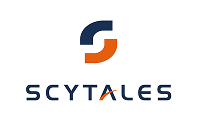
Scytáles AB (SCYTALES)
Scytáles is a global leader in Digital Identity Wallet products and services. For over a decade, the company has been at the forefront of digital security, pioneering solutions such as mobile IDs (mIDs) and digital wallets that complement traditional security-printed documents. Scytáles’ experts play a key role in digital wallet standardization efforts, contributing to organizations such as OIDF, W3C, ISO/IEC, ETSI, and CEN. Offering a full-stack digital identity portfolio, Scytáles delivers solutions for secure identity verification, seamless onboarding, and system integration, helping governments and businesses protect sensitive data while enhancing user convenience. Scytáles has developed a modular Digital Identity ecosystem with independent layers, ensuring scalability, versatility, and interoperability. With a strong focus on innovation and compliance, Scytáles enables organizations to navigate the evolving digital identity landscape with confidence.
Scytáles (as part of a consortium) was selected by the European Commission to implement the Reference Implementation for the European Union´s Digital Identity Wallet (EUDIW), intended to serve all 450 million European citizens and 27 Member States, a four-year long-term project that started in March 2023. Scytáles is also providing support for the writing and revisions of the ARF as well as the eIDAS Implementing Acts.
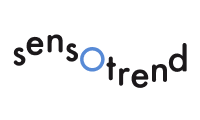
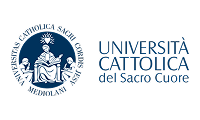
Universita Cattolica del Sacro Cuore (UCSC)
The Università Cattolica del Sacro Cuore (www.unicatt.it), founded in 1921, includes four campuses (Milano, Brescia, Piacenza-Cremona, Roma), 14 faculties, 52 three-year major tracks, 42 graduate level degrees, 1 four-years degree, over 100 master tracks, 53 specializations and 5 Postgraduate Schools covering the understanding and study of those topics that have proved vital to the well-being of each human being: the new frontiers of economics, bioethics, environmental recuperation, developments in the judicial fields, family dynamics, major mass phenomena, the evolution of political systems, new horizons in medicine, the technological applications of physics and mathematics, and the most recent discoveries in environmental research.
The University plays a pivotal role in the Italian community through the Medical School, established in Rome in 1961, with the teaching hospital Fondazione Policlinico Universitario Agostino Gemelli (www.policlinicogemelli.it), that represents almost 10% of the entire productive capacity of Lazio Regional Health Service with almost 100’000 patients cared every year and 1559 Beds (of which 203 daily hospital + 37 for rehabilitation). The School of Medicine is at present a world-class training ground for future leaders in medical research and practice - including every modern medical discipline as well as some of the most respected medical scholars all over the world - public health, and biomedical science.)
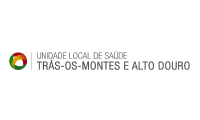
Local Health Unit of Trás-os-Montes and Alto Douro, EPE (ULSTMAD)
The Local Health Unit of Trás-os-Montes and Alto Douro - known in Portuguese as Unidade Local de Saúde de Trás-os-Montes e Alto Douro, EPE (ULSTMAD) is a regional healthcare institution in northern Portugal that integrates hospital and primary healthcare services to ensure comprehensive and continuous patient care. As a key player in the national health system, ULSTMAD is committed to innovation, quality, and accessibility in healthcare delivery.
ULSTMAD encompasses a wide range of healthcare services, including hospitals, health centers, family health units, diagnostic and therapeutic support services, public health, and social support. These services are strategically organized to provide integrated and holistic care, covering prevention, treatment, rehabilitation, and long-term support.
With a strong focus on meeting the specific needs of the local population, ULSTMAD develops and implements healthcare policies and strategies that enhance coordination between primary and hospital care. By fostering collaboration, optimizing resources, and prioritizing patient-centered approaches, the organization aims to improve health outcomes and ensure efficient, high-quality service delivery.
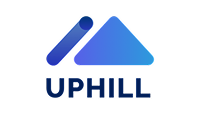
Uphill SA (UpHill)
UpHill a care orchestration software that integrates with existing hospital information systems to automate tasks and bridging gaps in care. With UpHill orchestrating care, hospitals have a comprehensive view of their patient's status throughout their journeys as individuals and as a population, including past history and expected next steps.
UpHill supports health teams to increase capacity and reduce waiting times/lists by:
- Automating tasks such as, scheduling of exams and appointments;
- Monitoring patients' signs and symptoms after discharge, with alert generation;
- Stratifying patients, so that physicans are focused on patients that really need them;
- Getting records automatically proposed to the Electronic Health Records System;
- Sharing with patients educational materials as well as best practice recommendations;
The software is applicable to multiple hospital areas, from the Emergency Room to the Operating Room.
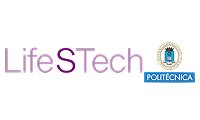
Universidad Politecnica de Madrid (UPM)
Universidad Politécnica de Madrid (UPM), the largest Spanish technological university specializing in all engineering fields and architecture.UPM is committed to transferring knowledge generated through its research structures to society and transforming it into advances and technological developments. As part of UPM, LifeSTech engages in activities devoted to the design, development, and evaluation of ICT-based services and applications. The group’s primary focus is on creating and promoting new ideas, methods, and technological solutions throughout the entire value chain of digital health solutions.
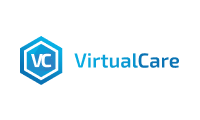
Virtualcare, LDA (VIRTUALCARE)
VirtualCare is a spin-off of the University of Porto resulting from the involvement of members of Research Units dedicated to healthcare information systems, research activities, and services provision in Health Informatics. Its objective is the creation and dissemination of innovative and high-quality software products, systems, and services.
VirtualCare builds upon the accumulated experience of the past 20 years by a group of researchers with diverse backgrounds and experiences ranging from the medical field and biostatistics and especially computer sciences applied to healthcare.
Our goal is to develop solutions that enable the systematic application of information technology and biomedical knowledge to the field of healthcare delivery, aiming to improve its quality and increase its efficiency. The products, processes, and services intended for the market encompass the main stages of the healthcare information cycle, enhancing medical decision-making processes and patient autonomy: acquisition, processing, validation, presentation, analysis, interpretation, and storage.
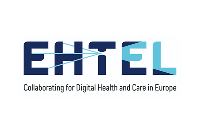
European Health Telematics Association (EHTEL)
EHTEL is the leading forum for decision makers and implementers in Europe, engaged in supporting the transformation of the health care practice in Europe through eHealth. The association brings together under one roof a wide range of constituencies crucial for the betterment of health and social care with health IT. They include National and regional health authorities and systems, Hospitals and other health institutions, Public and private insurance providers, Health professionals, Health managers and executives, Patients, Citizens and consumers, Industry, and Researchers and academics.
EHTEL provides a platform for information, representation, networking and co-operation to its 40+ corporate members.
With EHTELconnect (www.ehtelconnect.eu), the association draw on the expertise of EHTEL’s highly experienced and multi-stakeholder membership to offer expert advice and educational services tailored to the needs of individuals and organisations working in the field of digital healthcare.
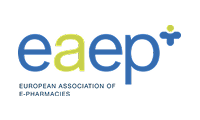
European Association of E-Pharmacies (EAEP)
The European Association of E-Pharmacies (EAEP) represents the voice of e-pharmacies on the European continent. The EAEP promotes its interests mainly with political stakeholders, regional and business actors, with the ultimate aim to improve the health of Europe’s citizens and strengthen the European healthcare system. E-pharmacies have digitalised the classical pharmacy, and therefore act at the crossroads of digitalisation, healthcare, e-commerce and sustainability. As pioneers in digital solutions, the members of the EAEP are dedicated to innovating secure processes for managing health data, delivering medicinal products and facilitating digital healthcare services. Compliant with both national and EU regulations, all members are committed to advancing the quality, safety and efficiency of healthcare for all Europeans
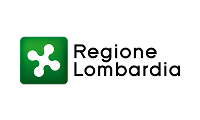
Lombardy Region / Regione Lombardia (REGLOM)
Lombardy Region is responsible, via the Directorate General Welfare, in governing the Lombardy Social Health System and ensure that Lombardy 10 million citizens are provided with effective, efficient and appropriate health and social care as well as health services in general.
Lombardy Region favours the internationalization of the Regional Social Health System by joining projects and programmes cooperating with institutions and professionals all around Europe.
The Welfare international activities aim at favouring the dialogue on the healthcare system and organization, as well as the spread of common IT standards, healthcare systems interoperability, telemedicine, organizational choices and telediagnosis.
